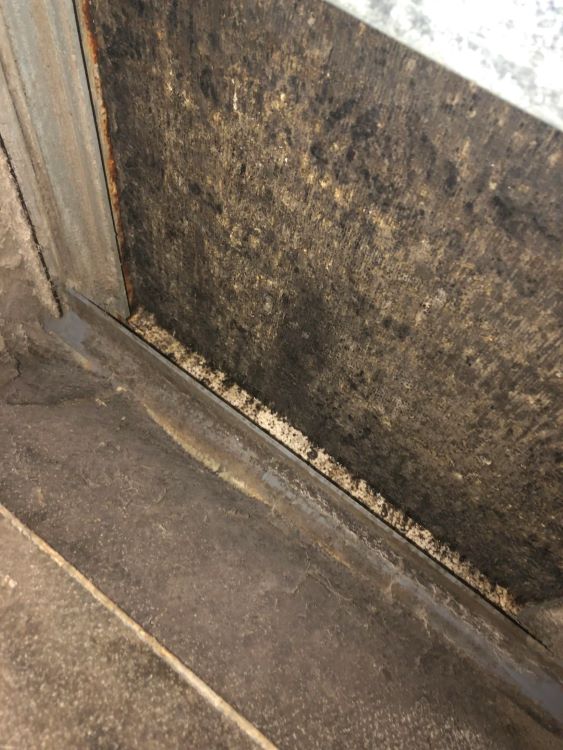A tenant shared some shocking photos of their neglected air conditioning unit, revealing their landlord's lack of care.
On the r/LandlordLove subreddit, the original poster posted three photos of what appears to be mold growing on the filter portion of their AC unit, presented without comment.


"That looks like black mold. Please call the city," one alarmed person wrote in the comments.
Another tried to ease the tension, saying, "I think this is pretty obvious but just in case do not use that." To that, the original poster said they'd already turned the unit off, but it was unfortunately going to be "a hot night."
Unfortunately, the tenant who posted their dirty AC unit isn't alone. A renter in Texas shared photos of a similarly dirty unit in a different subreddit, revealing their landlord not only ignored their concerns about it working well but also called them an "idiot" on top of it. They ended up paying $300 out of pocket to address the issue and still hadn't been reimbursed.
Another renter had concerns about the air quality after wildfires in their area, forcing them to use air filters after they noticed the doors in their unit weren't properly sealed.
Allowing air conditioning units to become as dirty as the one shared in the post is hazardous to a person's health. Studies have shown that the bacteria and mold growing on the filter can be spread through the air to people and pets living in the home, leading to things like Legionaire's disease and allergic reactions, according to a report from Time Magazine.
They're also incredibly inefficient, meaning a higher bill for the person living in the home, and a bigger waste of energy resources. The Department of Energy states that replacing a dirty air filter can lower a unit's energy consumption by 5-15%. With the continued rise of temperatures around the globe, having a working AC unit that runs at its peak is crucial.
Landlords and HOAs across the country have been notorious for stalling efforts for tenants and homeowners to make eco-friendly upgrades like solar panels, heat pumps, and native plants. But people are pushing back, taking action by having laws changed or implemented at the state level or even within their own neighborhood.
Our guide to changing HOA by laws is a great resource to start making changes on the local level and find compromises to benefit everyone and the environment.
Join our free newsletter for easy tips to save more and waste less, and don't miss this cool list of easy ways to help yourself while helping the planet.









